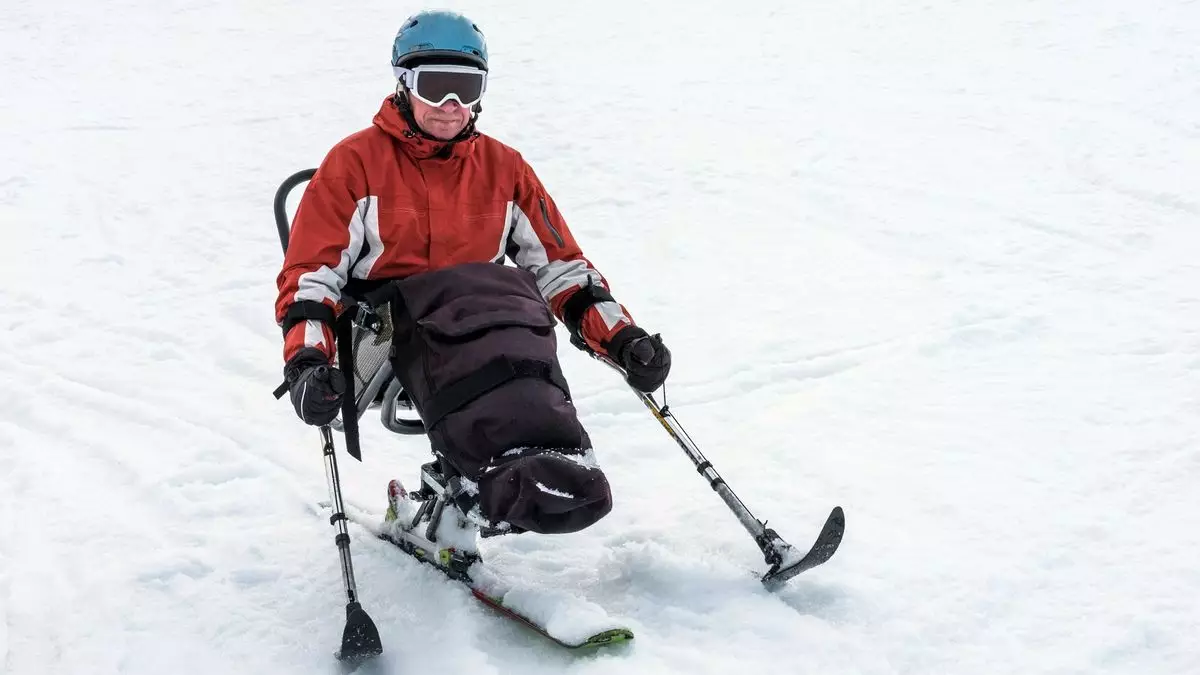Ski resorts have come a long way in offering adaptive skiing and riding opportunities for individuals with disabilities. However, according to Marina Gardiner, guest services director for Achieve Tahoe, individuals with mobility limitations still face challenges when it comes to accessing the mountains. One of the main issues highlighted by Gardiner is the lack of accessibility from parking areas to the slopes. At the Village of Palisades Tahoe, customers are required to travel through the village before reaching the slopes, whether it’s via tram, gondola, or lift. This poses a significant obstacle for individuals with mobility limitations, making it difficult for them to enjoy a seamless skiing or riding experience.
As ski resorts continue to upgrade their facilities, Gardiner emphasizes the importance of designing layouts that prioritize accessibility. She points out that Alpine Meadows, now connected to Palisades Tahoe via gondola, stands out as a beacon of accessibility due to its proximity to accessible parking. Gardiner, who herself has mobility limitations, praises Alpine Meadows for its flat terrain and minimal obstacles between the parking lot and the slopes. She underscores the need for ski resorts to provide ample accessible parking spaces to ensure that individuals with disabilities have convenient access to the mountains whenever they visit.
In addition to accessible parking, Gardiner believes that accessibility should be a core component of newbuild designs across the travel industry. She argues that all hotel rooms should be made accessible, and existing ski lodges should be modified to enhance maneuverability for individuals with disabilities. By making these proactive changes, ski resorts can create a more inclusive environment that caters to the needs of all guests, regardless of their physical abilities.
While Gardiner commends Palisades Tahoe and Northstar ski area for providing free lift tickets to Achieve Tahoe participants and volunteers, she points out that the demand for accessible lessons often exceeds the supply. Achieve Tahoe offers subsidized daylong lessons for $160, catering not only to individuals with mobility limitations but also to those with other disabilities. For example, a child with autism may require a private lesson instead of a group lesson. Unfortunately, other resorts in the Tahoe region do not offer similar programs, highlighting the need for more ski resorts to prioritize accessibility and provide specialized services for individuals with disabilities.
Improving accessibility in ski resorts for individuals with disabilities is crucial for creating a more inclusive and welcoming environment for all guests. By addressing the challenges outlined by Marina Gardiner and implementing proactive measures to enhance accessibility, ski resorts can ensure that individuals with disabilities have equal opportunities to enjoy skiing and riding experiences. It is essential for ski resorts to prioritize accessibility in their design and operations to make sure that everyone, regardless of their physical abilities, can participate in and enjoy the winter sports activities offered at these resorts.

